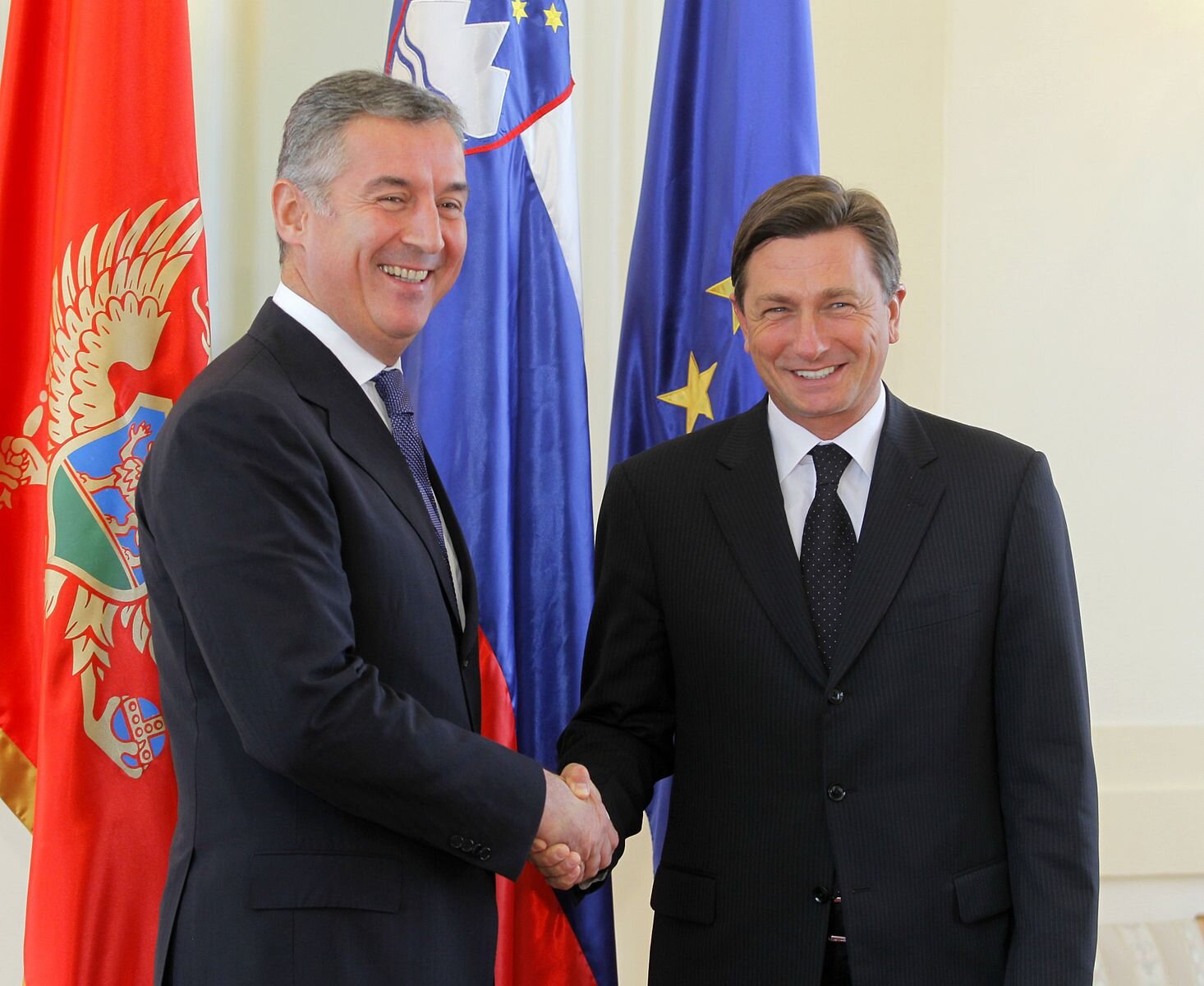New Coalition Replaces Socialist Party in Montenegro
Milo Đukanović shakes hands with Borut Pahor. (Wikimedia Commons)
Montenegro’s parliament ended three decades of socialist power on December 4 with the approval of a new coalition government. Nevertheless, the coalition, formed from center-right, pro-Serb, and green parties, only gained approval by 41 of the 81 deputies in the parliament. Montenegrin President Milo Đukanović’s Democratic Party of Socialists (DPS) has held power since the early 1990s when Yugoslavia disintegrated and Montenegro and Serbia united. Montenegro separated from the union in 2006.
Montenegrin Prime Minister Zdravko Krivokapic said, “[Our] basic aspiration is to be the government of all, the government of the people... [for] the prosperity of our society.” According to Milos Konatar, a deputy of the new coalition, the parliament vote “represents the first step of democracy,” and they “are setting the standard that the change of government will become normal.”
Krivokapic and coalition members have accused Đukanović and the DPS of links to organized crime, a claim human rights and democracy watchdogs affirm. Đukanović and the DPS have denied the accusations. One of the new coalition’s priorities will involve eliminating organized crime and corruption, issues which have thus far inhibited Montenegro from joining the EU. Krivokapic will also focus on fighting the country’s economic downturn and the coronavirus pandemic and, moreover, has affirmed Montenegro’s commitment to NATO as well as to improving relations with Serbia.
Tensions between Montenegro and Serbia have existed since Montenegro’s expulsion of Serbian Ambassador Vladimir Bozovic November 28 by declaring him a persona non grata. Montenegro’s foreign ministry explained that the expulsion related to the ambassador’s “long and continuous meddling in the internal affairs of Montenegro.”
Serbia followed shortly by declaring Montenegrin Ambassador Tarzan Milosevic a persona non grata. The next day, however, Serbia reversed its decision. Serbian Prime Minister Ana Brnabic explained, “Good relations with Montenegro are above all important to us,” and said that Serbia “was once again extending a hand of cooperation and friendship.” With Krivokapic’s commitment to improving relations with Serbia, it seems likely Montenegro will accept.

